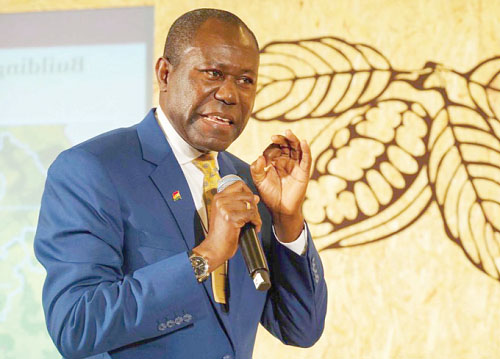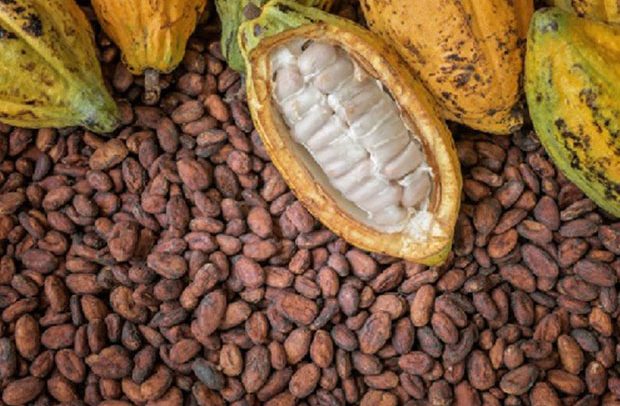
…calls for urgent review
The Ghana Cooperative Cocoa Farmers and Marketing Association Limited (GCCFA), has expressed dissatisfaction with the newly announced cocoa price for the 2025/2026 season, saying it falls short of expectations and does not reflect the true costs of production.
Government recently announced a new farmgate price of GH¢3,228.75 per 64-kilogram bag, an increase from last season’s GH¢3,100, while the world market price of cocoa rose sharply from US$3,100 to US$5,040 per tonne – a 62 percent jump.
The GCCFA said that although the increase looks positive on the surface, the calculation of US$7,200 Free on Board (FOB) price and an exchange rate of GH¢10.25 to US$1 does not reflect the realities farmers face and should be reviewed immediately.
The group, which represents 70 cooperative unions and more than 340,000 farmers across the country’s cocoa regions, argued that farmers expected a more substantial adjustment, especially in light of recent reassurances from government and COCOBOD.
Its own survey revealed that 67 percent of cocoa farmers believe a fair price lies between GH¢7,000 and GH¢10,000 per bag, while 25 percent expect at least GH¢4,000 to GH¢6,000, and 8 percent support GH¢10,000 or more.
“Government should have at least increased the price to no less than GH¢4,000 per bag to give cocoa farmers some relief and improve the sector,” the association said.
The GCCFA said that the current price, though slightly higher than last year’s, remains inadequate to meet farmers’ growing costs, and deepens their struggles.
“Labour costs have tripled, mainly because of competition from illegal mining, while the cost of transporting cocoa and buying farm inputs like fertilizer and pesticides has also risen sharply. The announced price is not only insufficient to sustain farming but also risks discouraging young people from entering the sector,” it added.
The association highlighted a number of likely consequences, saying- many farmers may be unable to buy fertilizer and chemicals needed to maintain their farms.
In its survey, 83 percent of farmers said only a significant increase in the cocoa price would allow them to afford inputs. Without these inputs, yields will fall and incomes will shrink even further.
The group warned that the low price could encourage smuggling. About 79 percent of farmers surveyed said low prices are the main reason some cocoa is smuggled across the border. It said this practice robs the country of revenue and puts the entire cocoa sector at risk.
It further warned that inadequate pricing could leads to delays in farm maintenance activities such as weeding and pruning, late payment of salaried workers, and constant pressure from illegal miners to buy cocoa lands- as farmers see little livelihood support from cocoa.
Beyond these challenges, the GCCFA stressed that transparent communication and farmer involvement are essential in setting cocoa prices. It is also requesting direct involvement in future price-setting discussions, so that the realities of local farmers are properly represented.
Moreover, the association recommended that government should channel the supply of inputs through the cooperative associations for timely and effective distribution. “Government’s efforts to reset the economy must not leave cocoa behind, as the crop remains the backbone of Ghana’s economy,” it added.
Despite its strong concerns, it expressed gratitude to government and COCOBOD for past support to cocoa farmers, acknowledging various initiatives rolled out in recent years. It also thanked same for reviewing cocoa prices in line with global market trends.
It urged government and COCOBOD to sit down with the cooperative association in urgent dialogue to address the challenges.
“We remain open to collaboration and dialogue to move the cocoa sector ahead. Without meaningful adjustments, the sustainability of cocoa farming and the livelihoods of farmers remain at risk,” it added.
For further enquiries, contact 233 544 237 640.
Email: [email protected]
The post GCCFA warns of hardship over new farmgate price appeared first on The Business & Financial Times.
Read Full Story
















Facebook
Twitter
Pinterest
Instagram
Google+
YouTube
LinkedIn
RSS